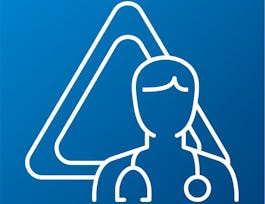Systems science has been instrumental in breaking new scientific ground in diverse fields such as meteorology, engineering and decision analysis. However, it is just beginning to impact public health. This seminar is designed to introduce students to basic tools of theory building and data analysis in systems science and to apply those tools to better understand the obesity epidemic in human populations. There will also be a lab in which students will use a simple demonstration model of food acquisition behavior using agent-based modeling on standard (free) software (netlogo). The central organizing idea of the course is to examine the obesity epidemic at a population level as an emergent properties of complex, nested systems, with attention to feedback processes, multilevel interactions, and the phenomenon of emergence. While the emphasis will be on obesity, the goal will be to explore ways in which the systems approach can be applied to other non-communicable diseases both nationally and internationally.



Systems Science and Obesity



Instructors: Jessica Jones-Smith
Sponsored by IEM UEM Group
16,900 already enrolled
(204 reviews)
Skills you'll gain
- Science and Research
- General Science and Research
- Health Administration
- Systems Engineering
- Social Sciences
- Systems Thinking
- Engineering Software
- Epidemiology
- Health Care Administration
- Health Systems
- Medical Science and Research
- Simulations
- Economics, Policy, and Social Studies
- Biostatistics
- Model Based Systems Engineering
- Network Analysis
- Socioeconomics
- Simulation and Simulation Software
- Sociology
Details to know

Add to your LinkedIn profile
6 assignments
See how employees at top companies are mastering in-demand skills


Earn a career certificate
Add this credential to your LinkedIn profile, resume, or CV
Share it on social media and in your performance review

There are 4 modules in this course
Obesity, the facts of the case, and human populations through a systems science lens.
What's included
7 videos1 assignment
Complex systems, system dynamic models, and developing a stock and flow. This module includes a lab lesson.
What's included
6 videos1 reading2 assignments
Social networks and obesity, neighborhoods and noshing, and prices and poverty.
What's included
9 videos1 assignment
Agent based modeling and conceptual motivation for agent based modeling. This module includes a lab lesson.
What's included
8 videos2 readings2 assignments
Instructors

Offered by
Why people choose Coursera for their career




Learner reviews
204 reviews
- 5 stars
73.03%
- 4 stars
20.09%
- 3 stars
4.41%
- 2 stars
1.96%
- 1 star
0.49%
Showing 3 of 204
Reviewed on Oct 12, 2023
Greate Course - looking forward to the advanced System Science Course by JHU
Reviewed on Aug 4, 2017
It is only that the language is little hard for non native speakers
Reviewed on Jul 13, 2019
Tough to understand for someone from a non-math background. However basic concepts are easy to discern and learn in relation to obesity
Recommended if you're interested in Health

Coursera Project Network

Imperial College London

University of Illinois Urbana-Champaign

Johns Hopkins University

Open new doors with Coursera Plus
Unlimited access to 10,000+ world-class courses, hands-on projects, and job-ready certificate programs - all included in your subscription
Advance your career with an online degree
Earn a degree from world-class universities - 100% online
Join over 3,400 global companies that choose Coursera for Business
Upskill your employees to excel in the digital economy




